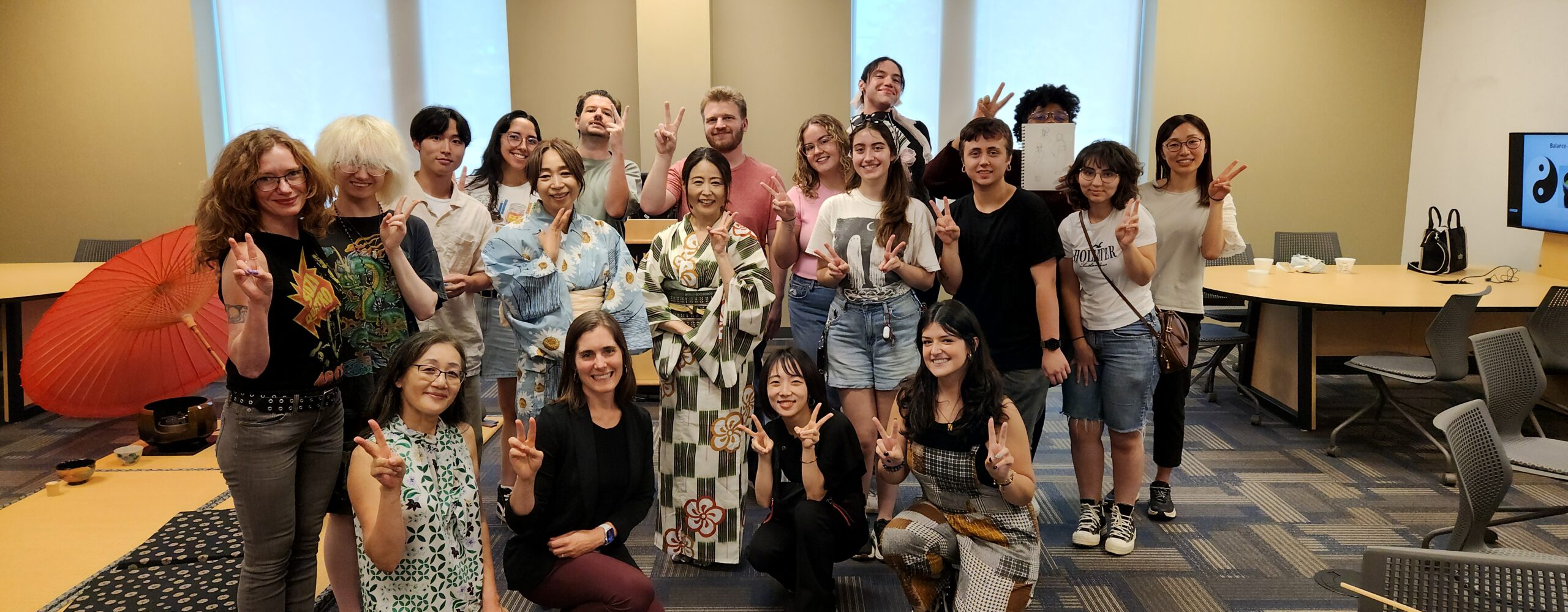
Even if you decide to pursue a career in a non-Japan-related field, knowing Japanese will make you stand out from the crowd in today’s multicultural global workplace. Many American university students choose to study an Indo-European language such as Spanish, French, and German because these languages are similar to English. Learning a less commonly taught language like Japanese shows that you are a unique, broad-minded and determined individual who is up for a challenge. The breadth of knowledge and perspective gained from studying Japanese also signals to employers that you have the ability to solve problems and manage initiatives creatively and collectively.
The Program in Japanese Studies offers:
Individualized Major in Japanese Studies
Minor in Japanese Studies
As an IUPUI undergraduate student majoring in any area, you are eligible to earn a BA in Japanese Studies. Develop a unique advantage and carve your own path without adding time to your studies by combining a Japanese degree with your other interests in any School on campus through the Dual Degree Advantage Program.
“Throughout most of my life, I have been captivated by Japanese art. When I was younger, I wanted to learn everything I could about the country that it came from. This turned into a passion that never ceased, and I chased it into university. For me, the Japanese Studies Program at IUI was a way pursue my interests in Japanese art and culture and the essential language skills to do so. I had so much fun in my Japanese classes! The professors were memorable and wonderful people, and the mistakes made in the process of learning a foreign language led to lots of laughs and lasting friendships with classmates. My time with the Japanese Studies Program at IUI ultimately culminated in my ability to pursue two life goals: a capstone thesis focused on Japanese folklore depicted in Hokusai’s Hyakumonogatari (One Hundred Stories) series and a chance to live and work in Japan with the prestigious JET Program. The skill of cross cultural communication and the opportunities it affords are priceless. What my time in Japan means to me truly goes beyond words. I got to meet so many incredible people, top of which were my students. Getting to explore Japan is of course great, but it’s the relationships formed, made possible only by pursuing Japanese studies, that mean the most. The ability to be conscientious of other cultures and to understand the challenge in thinking in more than one language and to use these to bridge gaps and make connections is an amazing feeling and an asset to any workplace! ”
–Jennifer Hurley, Art History BA, Japanese Minor, 2020
Contact Dr. Izumi Harris, Director of the Program in Japanese Studies.